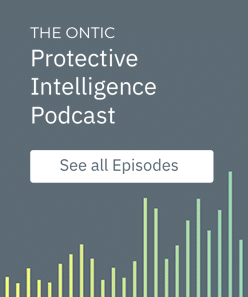Podcasts | Women Who Protect
How Intuit’s Corporate Security Team Demonstrates Value Through Human Connection and Mentorship
The power of a human connection can be heavily underestimated in corporate security — a field where many professionals may feel they have to keep their heads down and keep grinding away to do everything possible to protect people and property. However, taking the time — even if it’s for a quick conversation in the parking lot or in the break room — can do more than getting to know a colleague. It can help prove the immense value that security brings to an organization and uncover future opportunities for collaboration and support.
Alana Forrest started her 29-year public service career in 1983 at the Palo Alto Police Department and rose through the ranks to Lieutenant. Forrest was promoted to the position of Captain by joining the Los Gatos/Monte Sereno Police Department in 2000 and retired in 2012. She has spent the last 11 years in corporate security and currently leads Global Safety and Security at Intuit. She is a proud co-founder of the California Women Leaders in Law Enforcement Symposium, which began as a local partnership in 2006 and is now endorsed by multiple law enforcement associations with a national following.
Forrest joins host Dr. Marisa Randazzo to discuss:
- The impact of mentoring on her career and the motivation behind starting the Women Leaders in Law Enforcement Foundation.
- The role of storytelling and connecting on a personal level to demonstrate security’s value to other areas of an organization.
- Advice for women/girls pursuing a career in protection.
Key takeaways:
[08:38] Marisa Randazzo: I just think it’s so important — the value of mentorship. But it’s often difficult to figure out how to get started, so the details that you’re sharing here are very helpful. I want to ask a follow-up question about the California Women Leaders in Law Enforcement Symposium. Who is it open to?
[09:14] Alana: It’s open to anyone. It’s not just women but anyone in active law enforcement and retirees can also attend. We’re trying to just open up the floodgates and allow anybody who wants to come to join us in California every year. It’s been one of the proudest accomplishments in my career — to establish this and have it still be so successful.
[15:53] Marisa Randazzo: It sounds like what your foundation now your symposium did was give people up a place for that colleagueship, especially from those smaller departments when they didn’t have it in-house necessarily but they could still access. That same level of connection and advice and commiseration just from outside their department but still within the industry. That’s phenomenal.
[16:16] Alana: Yeah, absolutely and even now unfortunately in the 2000s and here we are in 2023 — we still hear similar stories of challenges that we heard in the 1980s and 90s. So it really does provide an opportunity and a forum for people who are really struggling to get some much needed support. It’s kind of sad that we are still having some of these conversations. But at least there’s support there.
[17:53] Alana: One of the things that I’ve really tried to do when I first enter any organization is build those relationships and find the right people to talk to — who’s in charge of what but also who are the team players that have leadership qualities that you can tell are the people that get things done or has the leadership’s ear. Seek out those people to get by your side and have lunch or coffee and have a discussion — what are your pain points with global safety and security or at the security team?
[20:51] Alana: I’ve been in where data really drives the conversation and so I think any sort of data points or storytelling [help in displaying value]. Tell the stories to let people know exactly what’s going On. As people started to come back to work I would take people through our Global Security Operations Center and let them see what we do because people really don’t have ah an understanding of how much work we do to keep them safe behind the scenes. So when they walk into that room and they see all the monitors and they see all the people and all the activity and I explain what we’re doing and how we keep them safe, that is a huge win.
[33:36] Alana: You know one of the things I’ll emphasize is again — finding those mentors and those champions and building relationships is so important. I didn’t get to any promotion or any position in my private sector career without the benefit of a relationship or a connection that I cultivated. And also just being willing to be helpful to anyone who reaches out for questions.
